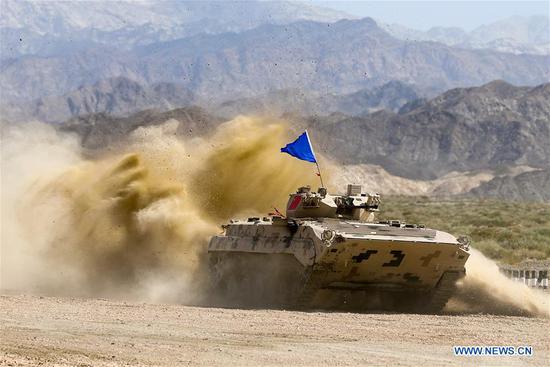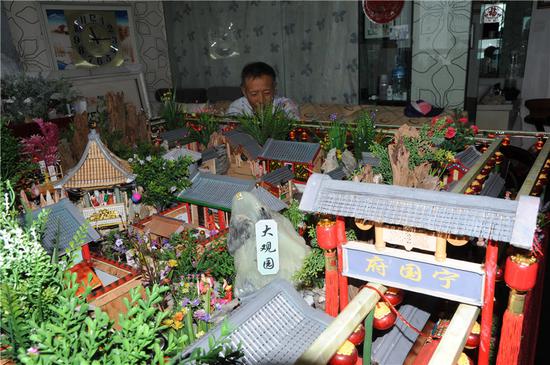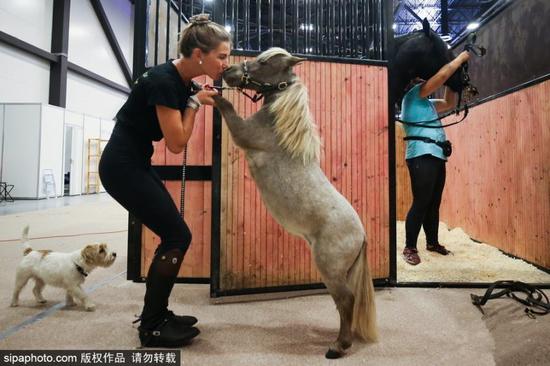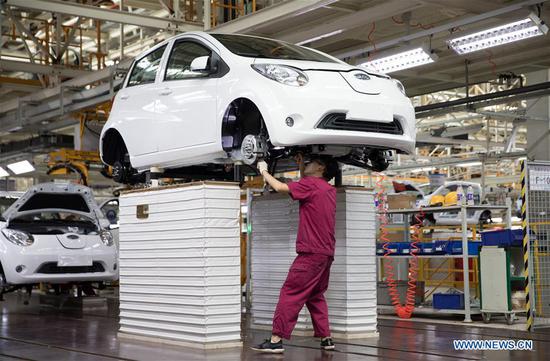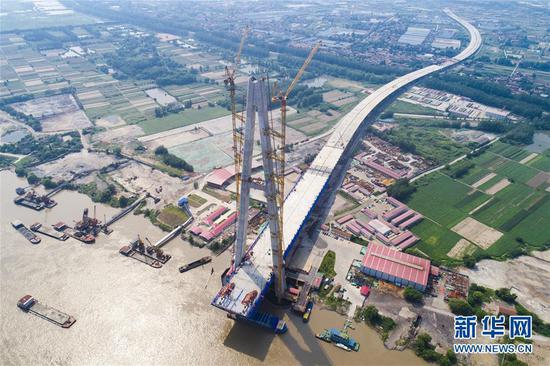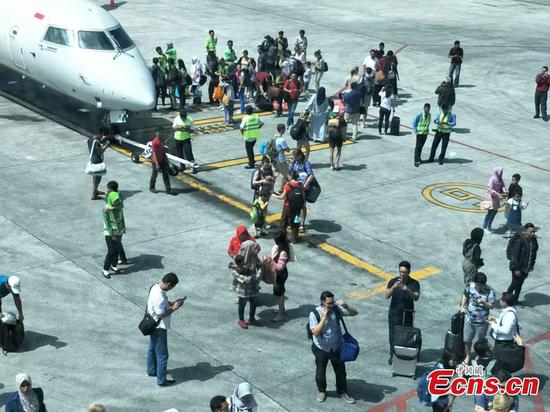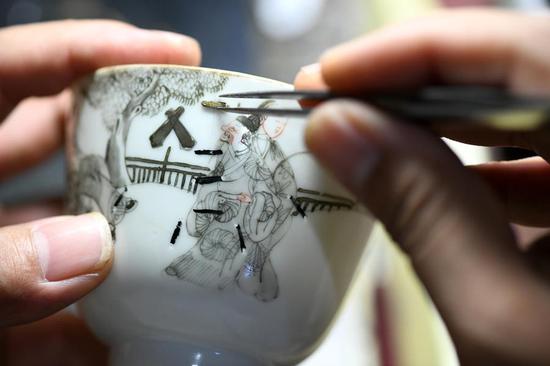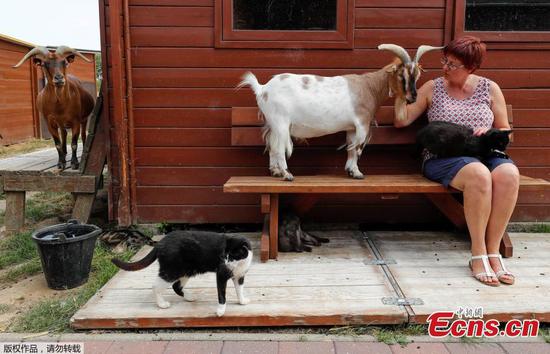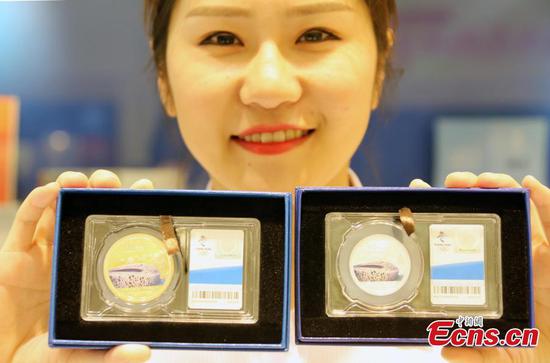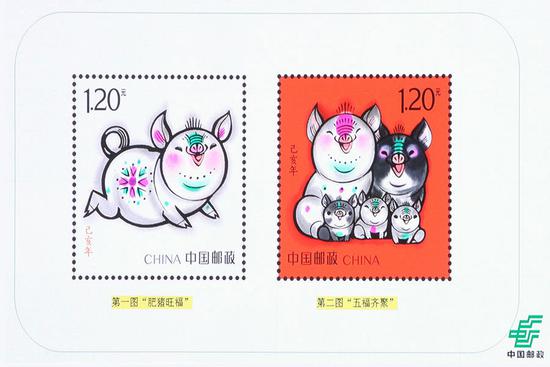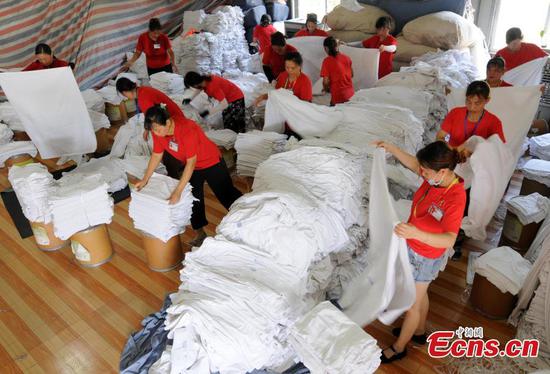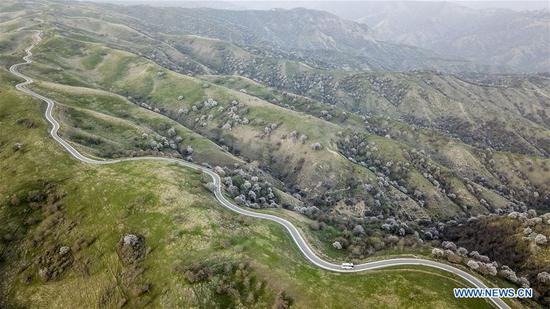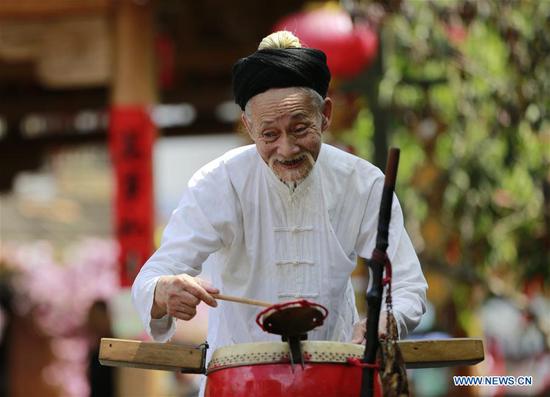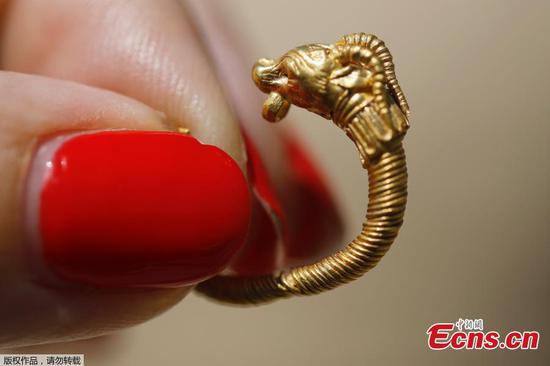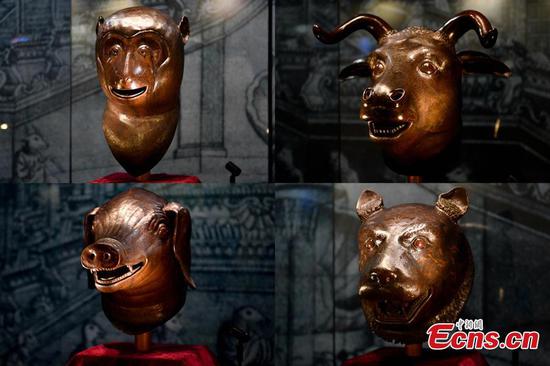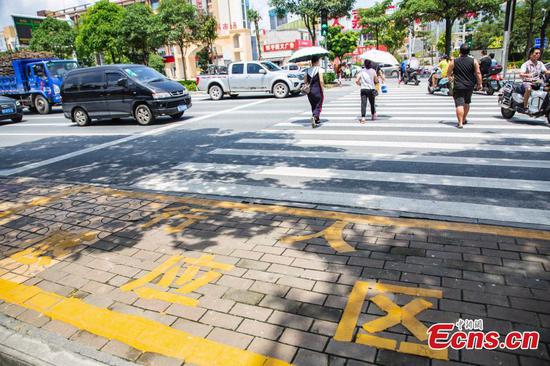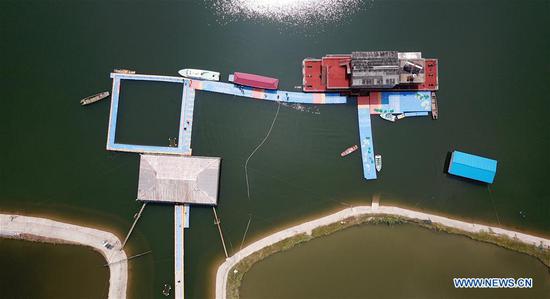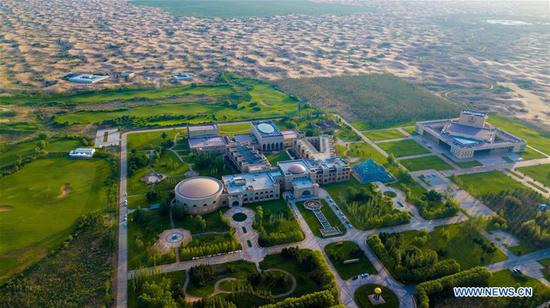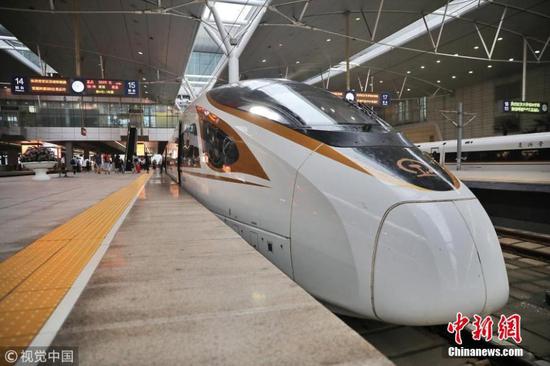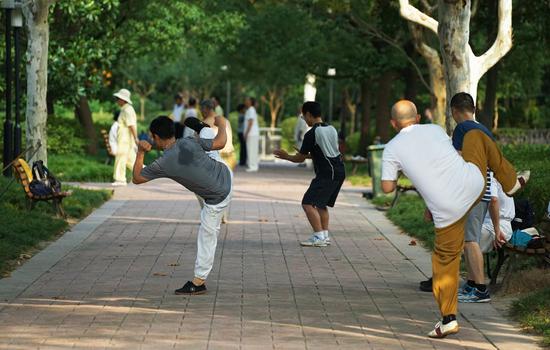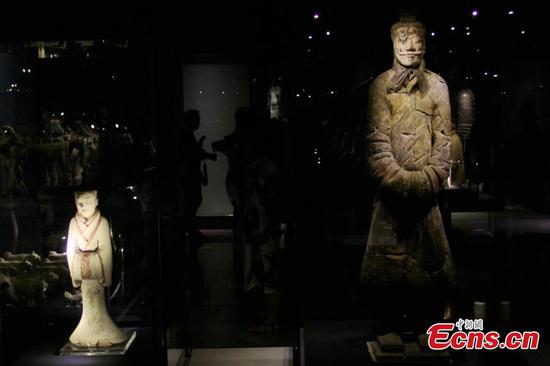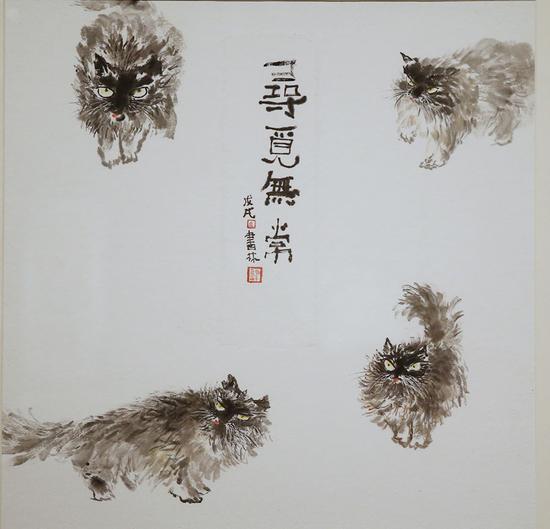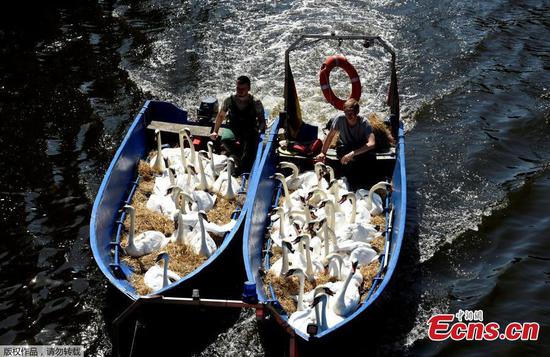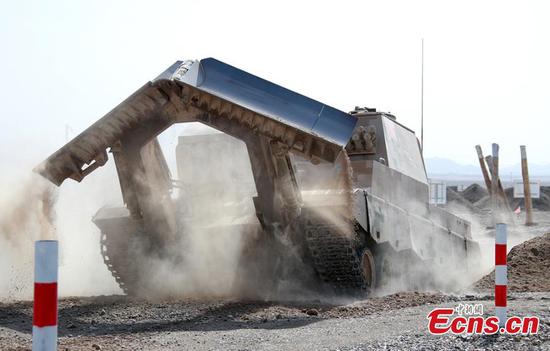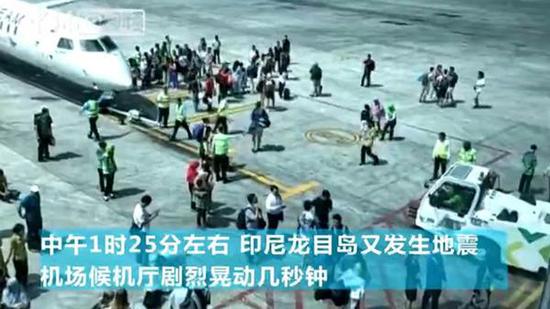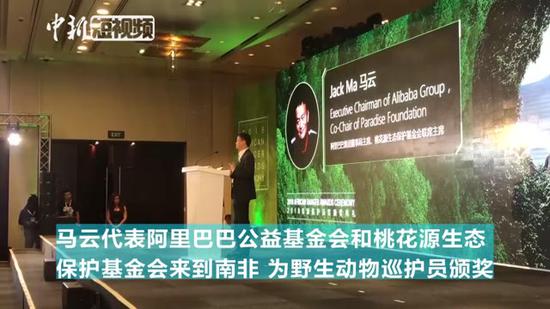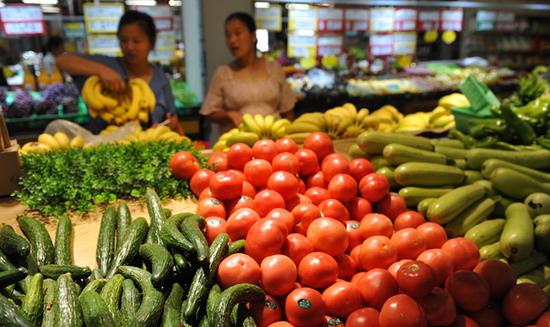
Citizens buy vegetable at a market in Nantong City, east China's Jiangsu Province, Aug. 9, 2018. China's consumer price index (CPI), a main gauge of inflation, rose 2.1 percent year on year in July, compared with 1.9 percent for June, data from the National Bureau of Statistics (NBS) showed Thursday. (Xinhua/Xu Congjun)
China's inflation data in July beat market expectations but remained benign, leaving room for monetary policy maneuvering.
The Consumer price index (CPI), a main gauge of inflation, rose 2.1 percent year-on-year in July, according to the National Bureau of Statistics (NBS) Thursday.
The growth was faster than the 1.9-percent rate recorded in June and the 2-percent expected by the market. It was also the highest level since March.
NBS statistician Sheng Guoqing attributed the growth to strong demand for traveling during the summer vacation.
Prices of air tickets, tours and hotel rooms rose 14.5 percent, 7.9 percent and 2.2 percent respectively month-on-month, NBS data showed. They accounted for 0.19 percentage points of the 0.3-percent month-on-month CPI growth.
On a year-on-year basis, medical and health care increased 4.6 percent, tour prices gained 4.4 percent, while educational services and accommodation increased 2.8 percent and 2.4 percent, respectively.
"The CPI growth in July has beaten market expectations," said a research note from China Merchants Securities, which also cited increased travel expenses as a major seasonal factor.
Asian investment bank Nomura said the inflation rise was "mainly driven by non-food price increases, which were in turn driven by rising gasoline prices as a result of already high global crude oil prices."
Gasoline and diesel prices surged 22.7 percent and 25.1 percent year on year in July, the NBS data showed.
Non-food prices increased 2.4 percent year on year and climbed 0.3 percent month on month.
The carryover effect also played a role, contributing 1.4 percentage points to the 2.1-percent year-on-year CPI growth, according to Sheng.
China Merchants Securities predicted that the uptick in inflation would not be sustained in future, citing lower pork prices.
The price of pork, China's staple meat, continued to slump in July, down 9.6 percent year on year, dragging down CPI growth by 0.24 percentage points. On a monthly basis, however, it registered a 2.9-percent increase, faster than the 1.1-percent rise in June.
Despite the recent rebound, the pork price will still drag down the annual CPI growth by 0.2 percentage points, China Merchants Securities estimates.
It maintained the forecast that the monthly inflation rate will not exceed 3 percent this year, leaving room for monetary policy maneuvering.
Authorities have pledged to continue a prudent monetary policy in the second half of this year while increasing support for the real economy.
China is aiming to keep annual CPI growth at around 3 percent this year, the same as the target for 2017.
The average year-on-year CPI growth for the January-July period stood at 2 percent, according to the NBS.
The NBS data also showed the producer price index, which measures costs for goods at the factory gate, rose 4.6 percent year-on-year in July. The growth slightly slowed from the 4.7-percent increase in June.









